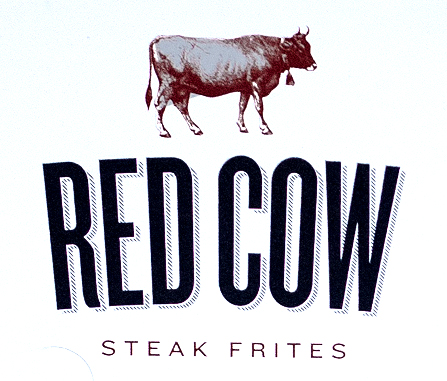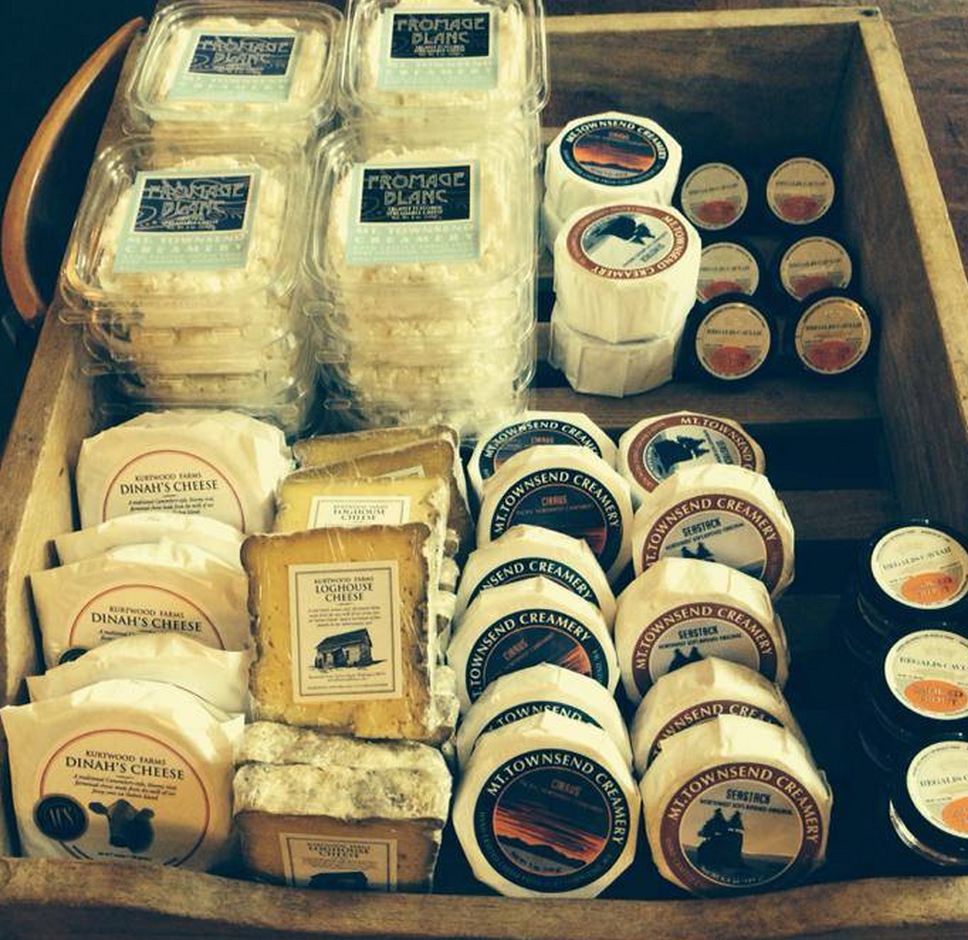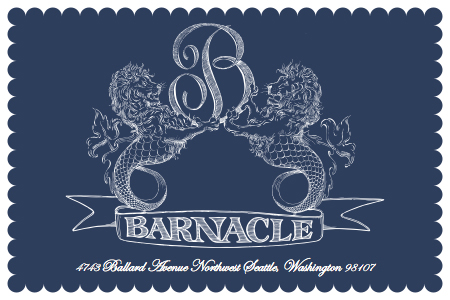Andrew Milstead, proprietor of Fremont coffee bar Milstead & Co., talks about it like this: Seattle’s coffee culture is so well-established, he explains, that it’s been difficult to gauge the slow, steady evolution of Seattle’s cafes and roasters. While new quality-centric coffee companies in cities like Los Angeles, San Francisco, and New York have grown exponentially over the past several years, Seattle has maintained a quieter course, buoyed by the unsinkable pop-culture references that crown the city King of Coffee–from Singles and Frasier to Pike Place Market souvenir mugs.
“I think of the psychological term ‘differential threshold,’ which is the moment you notice when something that has been static changes,” Milstead explains. “In Seattle, people are noticing things going on in other cities, and slowly starting to see things change in their own.”
Now there’s evidence that local specialty coffee is beginning to show signs of life after a decade of no-to-slow growth in the innovation department. Conjecture abounds about what happened to Seattle’s coffee scene after the birth of Starbucks in the ’70s and the rise of trend-setting independent roasters like Vivace, Vita, Zoka, and Lighthouse in the ’90s and early aughts.
“I think people in the coffee industry scratch their heads when thinking about Seattle coffee,” says Slate Coffee Roasters founder Keenan Walker, who oversees Slate’s just-opened brick-and-mortar store in Ballard, the Slatestream trailer on Capitol Hill, and the Central District roastery with his sister Chelsey Walker-Watson. “Seattle has a long way to go before we can come close to stacking up with Portland, San Francisco, L.A., and New York in terms of coffee quality. However, I think we are finally headed in the right direction,” he says.
Here’s how California-based coffee professional Ryan Brown views Seattle’s coffee history. “In order: Very esteemed, fell down, starting to pick itself up again.” Currently the director of coffee at Tonx in L.A. (launched by former Victrola roaster Tonx Konecny), Brown has worked for Ritual in San Francisco and Stumptown in Portland. “In short, my theory is that getting way ahead of the crowd—as Seattle did in the ’90s—makes it very easy to get lazy for a long time after that, secure (and maybe smug) in the feeling of your superiority,” Brown says.
Brandon Weaver, education director of Slate, also says momentum in the specialty-coffee world has shifted away from Seattle. “Largely I think this shift is due to people in Seattle taking the attitude that, since we are a ‘coffee city,’ we have everything figured out,” Weaver explains. “Seattle could use a dose of humility. It pairs well with coffee.”
Industry vet Trish Rothgeb sees the last decade of Seattle’s coffee history differently. Director of coffee at Zoka from 2005 to 2007, she launched Wrecking Ball Roasters in San Francisco and now serves as director of the Q coffee-grading program and educational programs for the Coffee Quality Institute. “I don’t really buy the idea that Seattle has lost its place as a coffee capitol of the U.S. or even the world,” Rothgeb says. “I still hear industry buzz about great cafes opening up in Seattle, or veteran Seattle coffee companies employing innovative methods or concepts. Other cities are coming on strong, yes, but remember, any coffee shop or local company needs only to win the hearts of its own city to be successful.”
Former U.S. barista champion and Seattle-based coffee consultant Bronwen Serna says the local scene has both changed and stayed the same over the past decade. “On the one hand, you have this amazingly rich history which has put Seattle on the map,” she explains. “On the other hand, it’s also this holding on to history that has stymied the growth and progress of the Seattle coffee culture.”
That rich history has been characterized by an obsession with espresso that began when La Marzocco U.S.A. CEO Kent Bakke started importing Italian espresso machines to Seattle in the late ’70s. “Seattle has traditionally been a dark roast, espresso-based coffee culture,” Walker says. “Over time, Seattle’s coffee style has become a cultural identity. With Starbucks becoming an icon in coffee worldwide, their roasting style had come to represent ‘coffee’ in general. The local market then followed suit, and the rest is history.”
Milstead agrees. “Seattle has traditionally been more of an espresso town. Because of this, I see the next exciting frontier in brewed coffee,” he says. “Discussing single-estate coffees, nuance amongst varieties, environmental concerns, and use of different brew methods are all playing a prominent role in the educational coffee experience.”
A growing number of cafes and roasters outside Seattle, including L.A.’s Handsome and Portland’s Coava, have already realized this new frontier. Now, in addition to Milstead and Slate, Seattle coffee companies are embracing a model centered on showcasing unique and traceable coffees, simplified drink preparation, and hospitality. Capitol Hill cafe Analog Coffee and Fremont-based microroaster Conduit are also in this group that’s pushing the scene forward.
Slate’s director of education Nik Virrey wants “death to the term ‘customer service’ and a creation of modern hospitality.” Slate’s Ballard coffee bar offers a printed menu rather than a traditional overhead display. There are also no sweeteners or syrups, no condiment bar or nonfat milk. What could be construed as hipster elitism is mitigated by Slate’s success at fostering a genuinely welcoming environment.
“Slate is the first place I’ve worked where the focus is purely on quality and hospitality,” Weaver says. He explains that shops like Milstead and Slate are aiming to promote coffee curation instead of customization. “The entire model hinges on trust. Since we don’t have many things people are used to, the burden is on us to provide a product that is so convincingly delicious as to facilitate return visits.”
But how far can you push a customer out of her comfort zone when she just wants a quick caffeine fix? Maybe the existence of companies like Slate and Milstead won’t change the morning coffee ritual for everyone. But it’s clear that Seattle once again has something to say in the ongoing discussion of where specialty coffee is headed. Rothgeb talks about the importance of embracing new trends while staying true to culture, explaining that “Seattle is uniquely suited to walk that line because of its strong history with good coffee.”
food@seattleweekly.com







